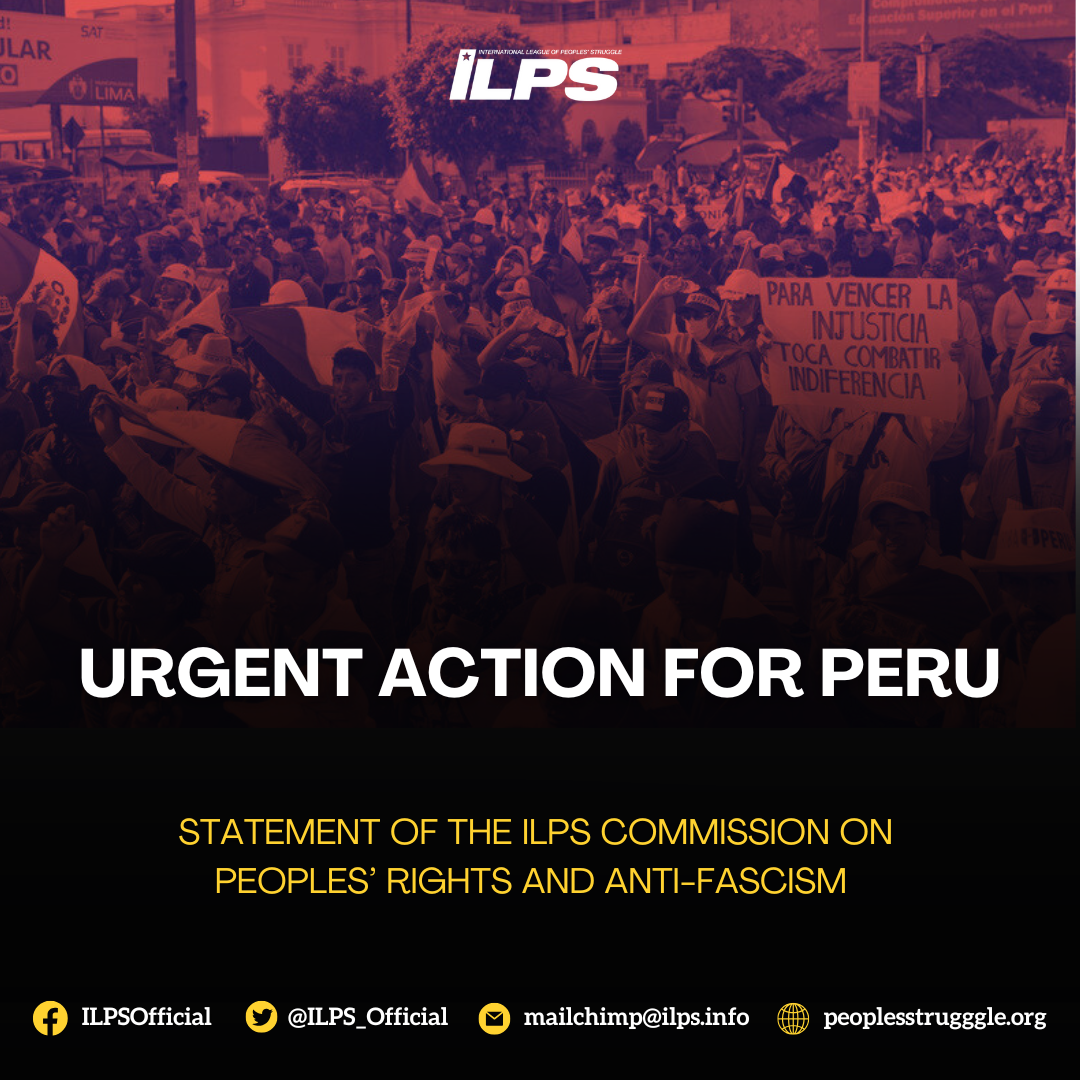PEOPLE’S COALITION ON FOOD SOVEREIGNTY
PRESS RELEASE | 16 October 2019
On “World Food Day” today, an international movement of grassroots groups of small food producers and food sovereignty advocates challenged the member states of the United Nations to change the policy framework on food and agriculture to truly eradicate hunger and malnutrition worldwide.
According to the People’s Coalition on Food Sovereignty (PCFS), the worsening global hunger and undernourishment are tell-tale signs of the “counterproductive neoliberal framework” of Sustainable Development Goal 2 (SDG 2), which aims to end hunger, achieve food security and improved nutrition and promote sustainable agriculture” by 2030.
One in every nine people in the world are suffering from hunger in 2018 and one in every four of them do not have regular access to safe, nutritious and sufficient food, according to the State of Food Security and Nutrition in the World 2019.
“Zero Hunger is not just off track. It is bound to fail,” said Sylvia Mallari, global co-chairperson of PCFS. She said SDG 2 will never meet its target progress as long as the real causes of global hunger and undernourishment are not addressed.
The PCFS official asserted that resources and energies should be channeled in ending landlessness and global land grabbing, man-made starvation in proxy wars and occupation, and the corporate control of food and agriculture.
“The realignment of public investments and private capital to the infrastructure and high-tech solutions especially of small-scale food producers fall short and shallow in realizing Zero Hunger by 2030,” Mallari added. “Global inequality and corporate monopoly should be factored in as threats and not just as mere trends that affect the global hunger situation.”
“Healthy diets for everyone are far from happening as long as the decisive actors of our food and agriculture systems maintain their foothold in adherence to neoliberal globalization,” she said, referring to the Food and Agriculture Organization’s theme for this year’s World Food Day, which was established to commemorate its founding.
“There is hunger amid plenty. Unless food sovereignty takes center stage in our food and agriculture policies, we are far from achieving Zero Hunger in ten or twenty or even fifty years from now,” said the PCFS official. “They are fooling themselves in believing that neoliberal globalization will take us to a hunger-free world.”
Meanwhile, PCFS global co-chairperson Razan Zuayter challenged the governments to scrutinize the role of the corporate private sector in their food and agriculture policies. She said the policy changes they demand only enable their continued investment and secure their immunity from violations.
Zuayter cited, for example, Brazil’s inaction to the Amazon fires which were instigated and aggravated by the expansion of industrial cattle farms to increase their beef production and export. Meanwhile, trade liberalization in Asia has resulted in a rice crisis. Rice-producing countries such as the Philippines have relied on imports instead of local producers to supply their staple food, killing the local rice industry.
“Transnational corporations continue to monopolize the seed and pesticide industry and should not be treated as our partners for development. Their insatiable interest for profit has always undermined the rights and welfare of the marginalized,” Zuayter said.
The PCFS official also called for the accountability of governments that use starvation as a weapon of modern warfare in conflict-stricken countries.
“The aid provided to us in West Asia and North Africa will never compensate nor even address the famine in our region. It is man-made, a war crime the Saudi Coalition should be made accountable of,” Mallari seconded.
According to the PCFS global chairpersons, various grassroots groups and civil society organizations worldwide are commemorating October 16 as “World Hunger Day” to underscore the hunger as a global phenomenon through various activities such as protest actions, assemblies, and press conferences. They will also rate the performance of their governments toward achieving Zero Hunger based on food sovereignty principles.
They shared that the World Hunger Day was declared by the Asian Peasant Coalition in 2012 to counter UN FAO’s World Food Day celebration. PCFS has since joined its commemoration, with members highlighting their efforts to uphold food sovereignty. Such include the practice and development of local agroecology and the assertion of land rights and the right to food through democratic exercises and mass campaigns. ###
References: Sylvia Mallari and Razan Zuayter, PCFS Global Chairpersons – [email protected]



